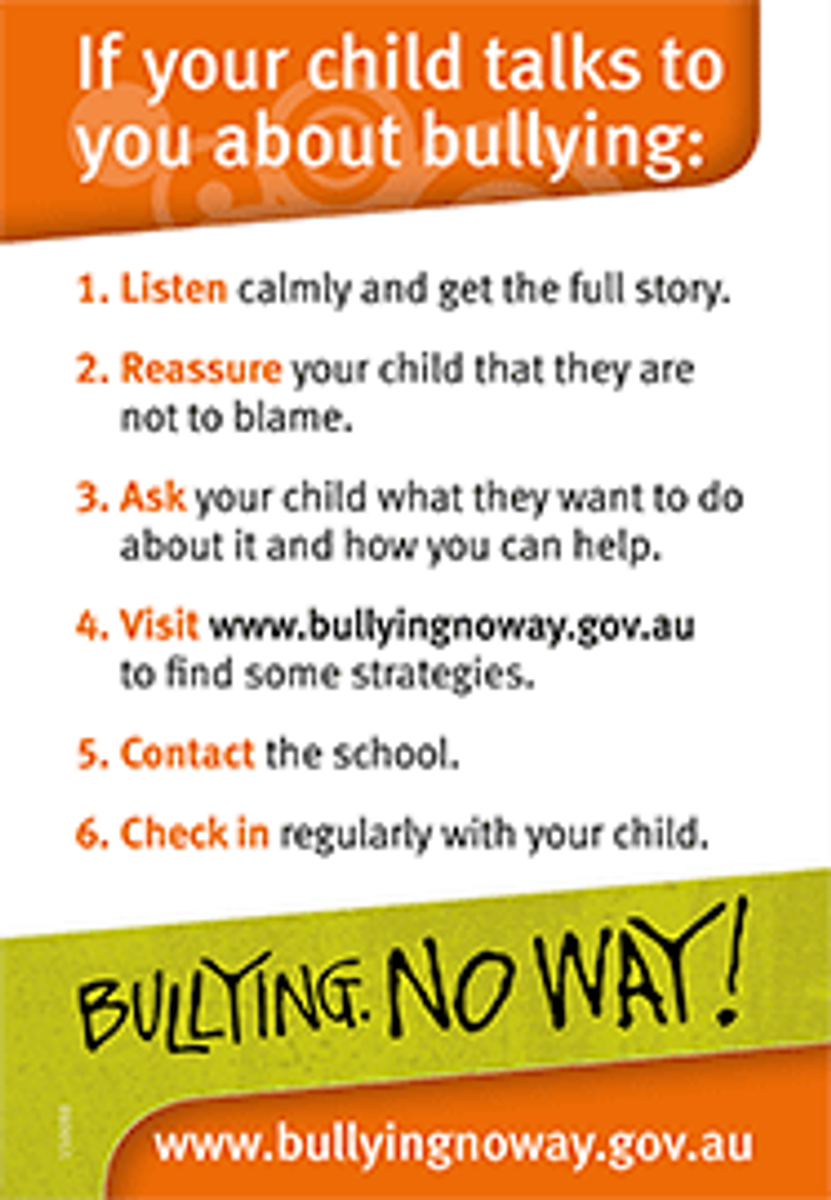Bullying. No Way Day

Bullying. No Way!
On Friday, 15th March our school was given the opportunity of having guest speakers Liam and Dani from Project Rockit visit. They came to our school to talk about cyber bullying in an incredible way. They were extremely confident and always kept smiles on everyone’s faces with funny activities and stories. Liam and Dani both had great personalities and made the students feel safe, welcomed and comfortable. They explained about where to seek help when we were being bullied and also what to do when we see someone being bullied, they also talked about how to love ourselves and to not let anyone bring us down.
Thank you to all the teachers at our school for making this event possible, but also a huge thank you to Project Rockit for visiting our school.
Alex and Elydia 7A
Mrs Buckle asked Alex and Elydia some questions.
What did Project Rockit suggest to prevent bullying? If you are being bullied then tell an adult and reach out for help.
If you are being cyber bullied don’t make a comment as it can make the situation worse, block them and report them.
Who would you report it to? Contact the App and they will remove the page.
What App? Snapchat, Instagram etc
Where do you go on Snapchat? There is a place in Settings.
So, you report but not comment – would you approach the person or just leave it?
It depends – if it continues ask them to politely stop. Always talk to an adult that you trust before you do anything.
As a school what do you think we should be doing for students? Provide more counselling. Students don’t really talk to teachers. Some students are hiding their emotions. You can sense that they are sad, but they don’t trust someone because they fear being judged. They struggle to do their work because they feel trauma.
Mrs Buckle suggested that students should go to the Team Leader or Sub School. There is now a student bullying allegation reporting sheet that has been introduced there are copies in the General Office, Library and Sub Schools. I will give you a copy so that you can inform other students. Sometimes if you are being bullied it is hard to approach them in the yard.
What would you do? Take a friend but not a large group because it can make them feel uncomfortable. Go to Sub School and say that you just want to talk and let someone know what is happening at the moment but not have any consequences given.
Was there an example that Project Rockit explained? One of their friends was being cyber bullied – some people made an account to just to put that person down. The page was reported and within one hour the page was removed.
Project Rockit
Samantha 7B
Project Rockit were inspiring and helped us understand the problems that can happen with bullying. I would now do things differently - keep to my own business and if someone started something that I know that I can talk to and get help from an adult that I trust.
Information for Parents
Parents are an important part of the work to prevent bullying and to respond effectively if it happens. Stopping bullying involves everyone.
Here are a few tips on what to do if your child talks to you about bullying. Parents know their children best and know the best way to tailor communication to their needs. adapt these tips to what works for your and your child.
- Listen calmly and get the full story. Your calm response is important to allow your child to tell you all about the situation. After they've told you their story, ask questions in more details if you need: who, what, where, when. Although you may feel some strong emotions about your child's experience, try to keep calm to avoid more distress to your child.
- Reassure your child they are not to blame. Many children blame themselves and this may make them feel even worse. you could say things like, 'That sounds really hard to deal with. No one should have to put up with that.' or 'I'm so glad you told me. You should be safe at school; that it's not fair at all'.
- Ask your child what they want to do and what they want you to do. A critical part of your response is to avoid jumping in to solve the problem. While it is natural to want to protect your child, helping them to find their own solution is a better option. It helps them feel they have some power in the situation.
- Visit www.bullyingnoway.gov.au to find some strategies. The website has tips and ideas for different bullying situations. One idea is to practise strategies at home to help your child feel more confident.
- Contact the school. Your child may be reluctant for you to do this, so discuss the idea and reassure them that the school would want to know and is able to help. Make an appointment to meet with your child's teacher and, if you need to, ask to talk with the Principal. Contact the school immediately if you have a concern about your child's safety.
- Check in regularly with your child. Keep the conversation going. It can take time to resolve issues, so check in regularly with your child about their experiences and their feelings. Your ongoing support is important.
If you are looking for support for yourself to deal with a bullying situation, you will find ideas on the Bullying. No Way! website for parents https://bullyingnoway.gov.au/RespondingToBullying/Parents As well feel free to contact the school if you would like to discuss any aspect of our approach to preventing bullying.


